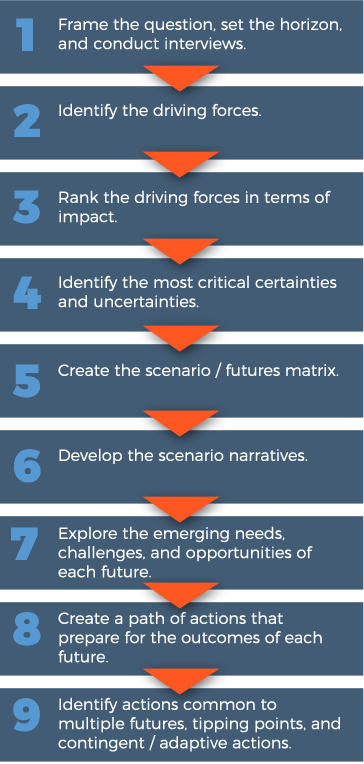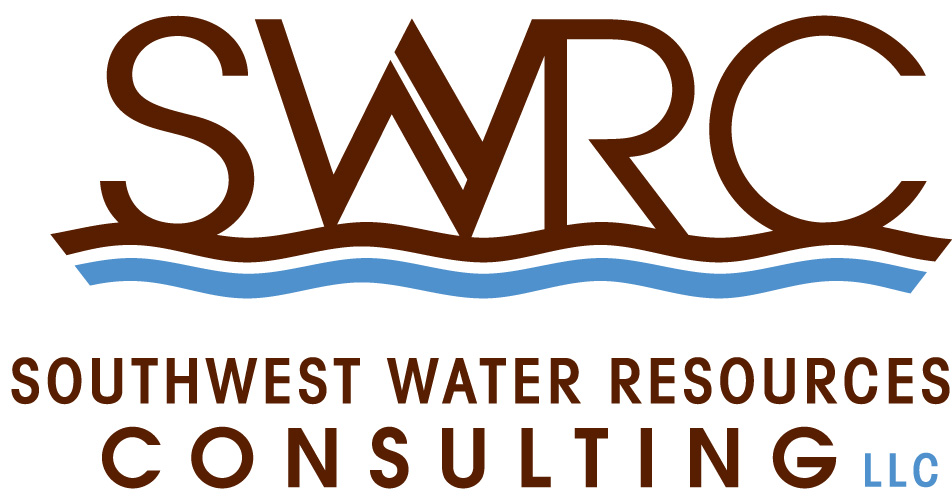
How Does Scenario Planning Differ From Traditional Approaches?
Traditional planning approaches most often try to predict the most probable future or develop a consensus about what the most desirable future might be. In both cases, the future is thought of as something “singular”—a target to accurately forecast or as an aspirational vision to bring into being.
Forecasters usually assume that the most probable future can be approximated by extrapolating observed trends to some future time— a valid assumption if the planning environment is sufficiently known and is relatively stable. Predictive approaches implicitly assume that the future will be similar to the past. This assumption can introduce heightened risk and even the potential for failure if it is applied in uncertain planning environments where the future may be different from the past.
Scenario Planning does not perceive the future as something singular—as a target. Instead, the planning future is viewed as a “field” of multiple possible futures that collectively define a credible range of future possibility with regard to a given strategic issue. That range is almost always larger than most expect. Professionals should consider possible futures that may not be probable or desirable because improbable and undesirable outcomes happen all the time.
Most organizations have little control over uncertainties in their planning environments. For this reason, I favor a planning approach that is more “strategic” and “adaptive.” A strategic action plan should have robustness and flexibility so that it can adapt to the still emerging needs, challenges and opportunities of a wide range of plausible, possible futures. This range may narrow or broaden as the planning environment changes over time. My planning imperative is to be “strategically” prepared for whatever lies ahead.


